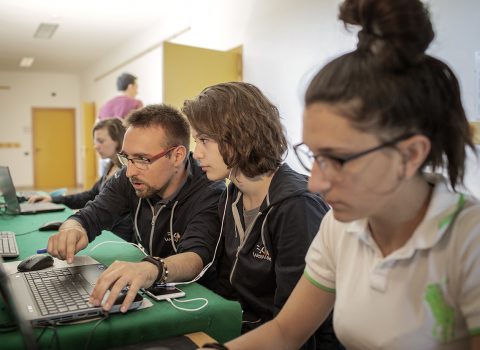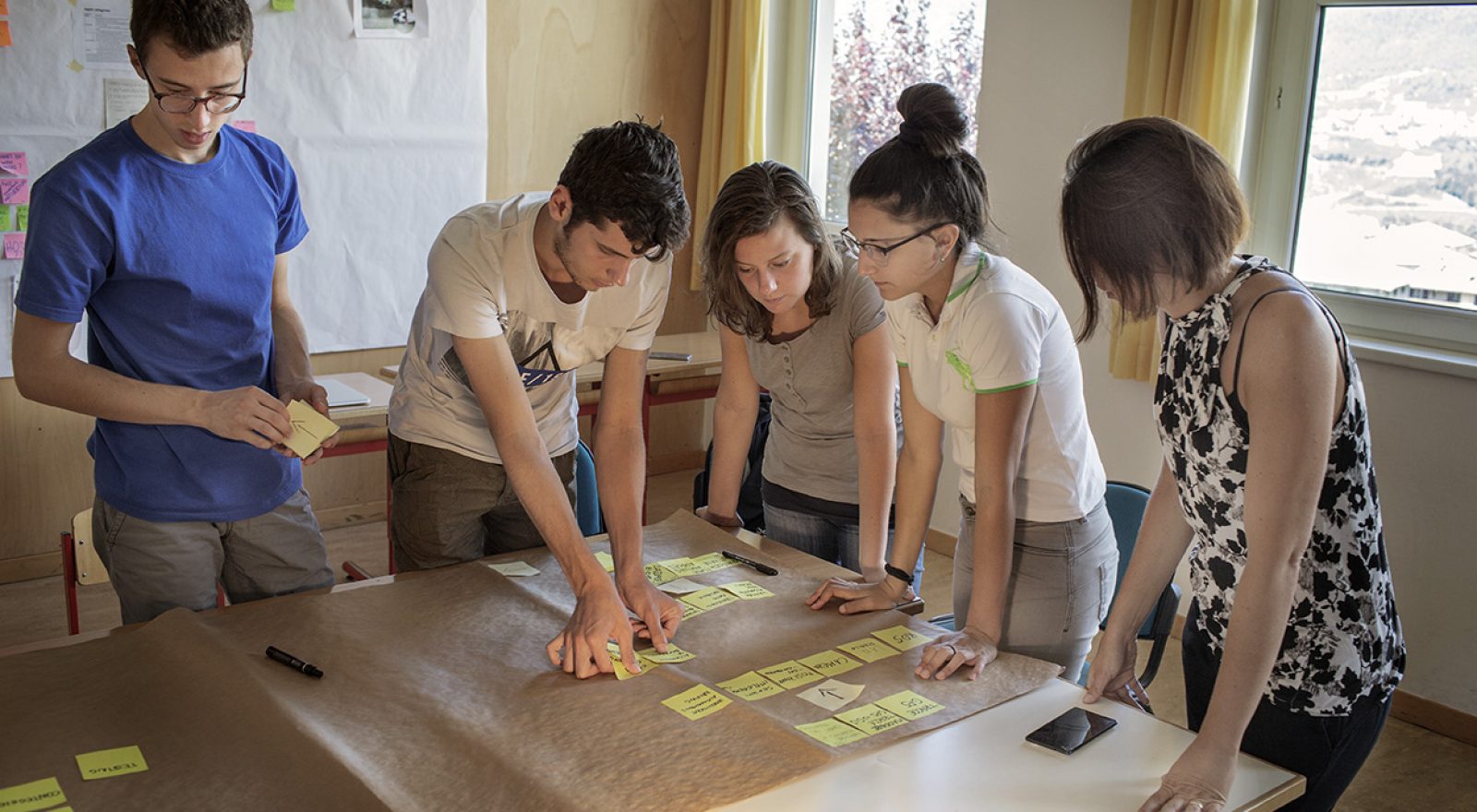
Webvalley 2018: blockchain, artificial intelligence and privacy
WebValley 2018: over 70 applications from 17 and 18 year-old kids from all over Italy. This year's theme: Machine Learning for Healthcare with Privacy-by-Design
Registrations for the 2018 edition of Webvalley, the FBK summer camp dedicated to young people between 17 and 18 years old, closed on March 18.
During the three weeks of WebValley, students will be asked to develop innovative solutions in the field of Artificial Intelligence applied to Healthcare.
“Students and FBK researchers will develop, alongside clinical experts from the Bambino Gesù Hospital, a platform that will combine blockchain technologies and Artificial Intelligence methods” Cesare Furlanello, scientific director of Webvalley, tells us. “The summer school will include lessons and project-based work on data science tools to process and integrate biomedical data, and to build predictive models, trying to identify weaknesses within this process”.
Special feature of this edition is the introduction of the principle of privacy-by-design, according to which all aspects concerning privacy and the processing of personal data must be taken into account right from the planning of a business process, and that the Foundation is adopting on all new projects and activities.
“Our goal – Furlanello adds – is to build the developing seed for tools to help patients, and in doing so, to help create a new generation of researchers and citizens able to safely manage the transition to a more responsible use of personal data. We must think of a data science that is sensitive to privacy, and at the same time able to accelerate medical research, respecting the will of patients and their relatives to contribute to the development of new treatments, which will be personalized and based on shared information. In particular, some machine learning models can be reproduced to extract basic elements that uniquely identify a patient, or more simply we want to ensure the patient who shares their data will always have the ability to check how they were used, thus fully tracking calculation actions that are necessarily carried out in the cloud and in the future will probably be assigned to dedicated artificial intelligence-equipped devices. These themes are of fundamental importance for our research community and we hope to have among our tutors those researchers who originally reported the issues now emerging at the public level of Facebook’s data management and who are the protagonists of the debate on ethics and artificial intelligence “.
“The challenge – Furlanello concludes – is to carry out this project with very young people, but I am sure that once again they will dazzle us with their enthusiasm and the freshness of their ideas. We have received 71 participation requests from girls and boys in this first phase dedicated to national candidates, and therefore we expect to exceed one hundred applications. In any case, a success of interest by young people on the topic of privacy in research”.



